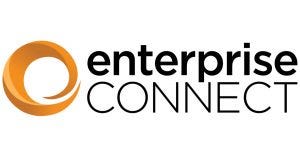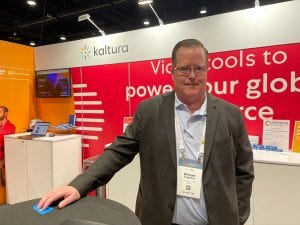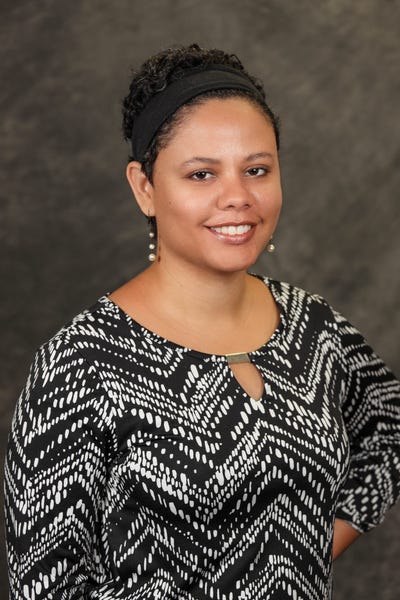Enterprise Partners Face New Challenges in a Post-Pandemic Era. Can They Keep Up?
“The traditional sales engagement isn’t there anymore,” one expert said.
March 21, 2022

ENTERPRISE CONNECT — In the last two years, enterprise partners have experienced uncertainty and rapid change within the channel. Some of this instability surrounds the nature of work itself, especially as a result of the pandemic. Will the way of work be hybrid for the long term? Or will we see a return to the “normal” way of doing in-person business of the pre-COVID era?
The pandemic, however, was just one factor disrupting the way channel partners were conducting sales. In the last 10 years, there’s been a push to transform the definition of what a channel partner does. More than just a salesperson, a partner is quickly becoming the consultant their customers have come to expect.
 Considering these trends, Channel Futures asks: What is the evolving definition of an enterprise partner? We spoke to three experts (two vendors and one partner) for their take.
Considering these trends, Channel Futures asks: What is the evolving definition of an enterprise partner? We spoke to three experts (two vendors and one partner) for their take.
The Future of Work
According to the Omdia IT Enterprise Insights 2022 survey, organizations report that remote working has improved employee productivity (Omdia is part of Informa, the parent company of Channel Futures.). Two thirds of organizations stated that employee productivity has improved with the move to greater levels of remote work, with one-half of these businesses also advising that they have the metrics to prove it.

Omdia’s Tim Banting
“Today’s digital transformation priorities look very different from priorities before the pandemic,” said Tim Banting, Omdia’s Digital Workplace Practice lead. “Organizations have rapidly accelerated efforts to improve communication and collaboration both inside and outside the organization, enhancing customer engagement, and developing a more modern, mobile and digitally enabled workplace. We are entering a phase where business leaders move away from crisis and contingency management and toward organizational reinvention and reimagination.”

Eclipse Telecom’s Dave Dyson
However, remote work doesn’t always advance business decisions. Dave Dyson is CEO and chief strategist of Chicago-based Eclipse.
“People buy from people; enterprises buy from people,” Dyson said. “Yes, they’re buying expertise and process, but ultimately they’re buying from people. I don’t believe that’s ever going to change. And I don’t believe that people are making multimillion-dollar decisions over a series of Zoom meetings if they can afford it. Big decisions are made through relationship-building and in-person meetings, which is what this channel excels at by the way.”
That’s not to say that hybridity isn’t here to stay, Dyson added. Rather, he questions the efficacy of holding all-day Zoom or Microsoft Teams meetings. And he also wonders whether the era of taking a three-hour flight for a one-hour, in-person meeting is also over.
“Hybridity is the name of the game. We can’t go back to the way we were pre-pandemic because it wasn’t effective. I think there’s going to be an interesting mix of the old and new,” he said.

Mitel’s Daren Finney
Daren Finney is senior vice president, global channels at Mitel, the business communications provider. Finney said he sees that mix of old and new in his talks with partners. To adapt to the pandemic, partners utilized CRM and Salesforce to manage their engagement with their customers. Some customers no longer want face-to-face engagements or aren’t quite yet comfortable returning to the status quo, he added.
“So, making sure you build a realistic CRM or realistic infrastructure that allows you to do that engagement is one of the other considerations we started to see more and more, particularly with enterprise partners,” Finney said.
Hybrid work may offer a solution, but after two years of the pandemic and a temporary drop in COVID cases, people desire human connection. Enterprise Connect, a premiere conference for unified communications technology, is holding its first conference since the pandemic in Orlando, Florida, this week. It’s difficult to assess how many attendees have registered for the in-person conference, versus those watching sessions online. Enterprise Connect officials said they will release that information post-conference.

Kaltura’s Michael Cosgrave at Enterprise Connect, Orlando, Fla., March 21, 2022
Michael Cosgrave is senior director of sales at Kaltura, which provides live and on-demand video SaaS solutions. Cosgrave is attending Enterprise Connect and said everyone he works with is excited to meet people at the conference. It’s not only a renewed enthusiasm, but it’s a level of excitement his colleagues didn’t quite have prior to the pandemic when attending trade shows. Kaltura executives are interested in this conversation about hybridity, he said, because one question is still outstanding. Are sales more profitable in a hybrid environment versus in-person?
After attending two previous trade shows and now Enterprise Connect this year, Cosgrave said, “I’m about 60 days out from being able to tell whether that’s true or not.”
He added that for in-person shows the “return seemed good. But you have to go through that sale.”
However, getting a sale is different for a vendor than …
… for the enterprise partner.
The Rise of the Consultant
For partners, selling a great product to customers isn’t enough.
“The traditional sales engagement isn’t there anymore; customers are expecting so much more value-add from their partners and from their vendors,” Finney said. “So, what we see now is that partners are investing more in customer success functions, in service functions, in hosted solutions to make sure that they can support their customers much more broadly than the supply of the software or the hardware.”
Dyson agreed. He said he predicted more than a decade ago that there was room for partners to use their expertise for consulting and managed services. It was one way for a partner to protect themselves against the ongoing evolution of price compression.
“Have your own expertise and own intellectual property and charge for it,” Dyson said. “The era of ‘I can get you three quotes’ is over, and I think it’s been over for a while.”
The enterprise buyer wants sophistication, he added. Customers want analysis, assessment and financial details that are complex. However, channel partners are often reluctant to charge for such expertise, Dyson said, even though many customers have line items in their budgets for consulting.
“We’re leaning more and more at Eclipse with the consulting piece because it’s our highest value,” he said.
Creating value means also becoming more of a technology adviser. Finney said he’s seen a shift in that customers demand that their partners understand the technology stack customers are using.
“That’s where the customer success piece really becomes relevant, because it’s taking the time to understand the customer’s full infrastructure and how you can add more and more value to what they’re currently invested in,” he said.
The Influx of M&A
Understanding the full stack is also relevant when mergers and acquisitions come into play. Partners need to understand the technologies that are being adopted under M&A, often involving two legacy systems. And this task is becoming more and more relevant as M&A has increased not only globally but within the channel over the last two years.
“Does the technology have the ability to scale?” is a question a partner must have the skills to answer, Finney said.
That being the case, the acceleration of M&A is fundamentally changing the structure of the channel. Consolidation will lead to fewer UC providers, as 8×8’s recent acquisition of Fuze demonstrated, Dyson said.
“Microsoft could buy a big UC provider with the change in the couch cushion. And then you have companies like Salesforce and Google and Amazon poking around the peripheries,” he said. “I would expect to see major acquisitions soon.”
What does this mean for partners? Many companies don’t understand the business model of the channel and don’t want to pay money into an indirect operation.
Dyson said there’s a silver lining.
“To be a channel partner in this world is to be ever-evolving and to be someone who always has their eyes on the horizon. It’s what’s new, what’s next, what’s going to help my customer improve their bottom line,” he said.
Enterprise Connect is part of the Informa Tech portfolio of live events and digital platforms. it is operated by Informa, the parent company of Channel Futures.
Want to contact the author directly about this story? Have ideas for a follow-up article? Email Claudia Adrien or connect with her on LinkedIn. |
Read more about:
AgentsAbout the Author(s)
You May Also Like


